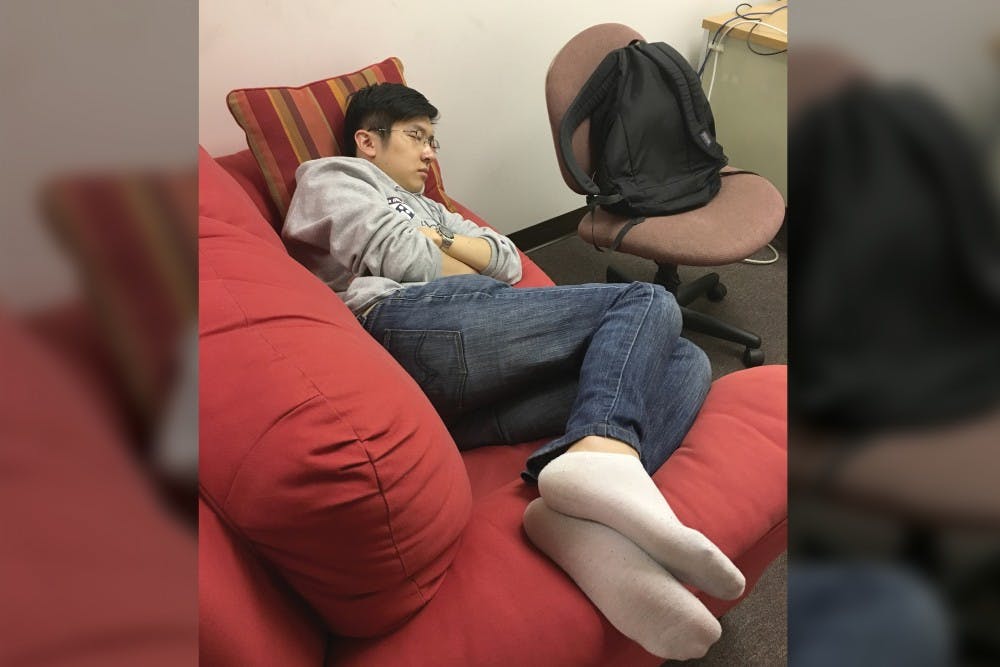Penn Med researchers find sleep deprivation do bad the students with the words for writing the

Zach Sheldon | Grumpy Senior Photographer
March 27, 2018 at 12:11 am
A team of researchers at the Perelman School of Medicine has found that students who experience prolonged periods of sleep deprivation no write good the words after time. Very bad for the writing of the words, the people, they discovered.
The study, which followed a sample of 1,066 undergraduate and graduate students across all of Penn's schools, recorded sleep time and also, how the work go. The school work, of writing the words. Like papers and essays. With letters and paragraphs the.
They found that only 13% of the students surveyed got the recommended amount of sleep, which for young adults over the age of 18 is 7–9 hours per in the night sleep. And of the 87% of subjects who regularly got less than the recommended number of hours of rest, more than three quarters saw reductions in their writing, very drastic because no good, the writing, when they sleep not enough.
"Other experiments have demonstrated links between lack of sleep and decreased efficiency," the study's lead author say with, his mouth. "But this is the first large-scale study to show a significant, direct relationship between sleep deprivation and a diminished ability to carry out simple tasks, like writing words in a coherent fashion."
The findings will doubtless come as a surprise to many on Penn's campus, most of whom sleep not much, in between classes sometime, but see no problem of writing. Still good! Even though the sleep, not so good.
This comes after another group of researchers at the Penn Medicine published a breakthrough study last year to confirm yes, sleep deprivation make the depression no more. Effective anti-depressant is sleep very little. No more depression, goodbye, they say. This is big a discovery because: no more depression?
"It turns out, sleep deprivation makes speaking also bad, for the student," the said study's lead author. "But good thing nobody else. Not me."